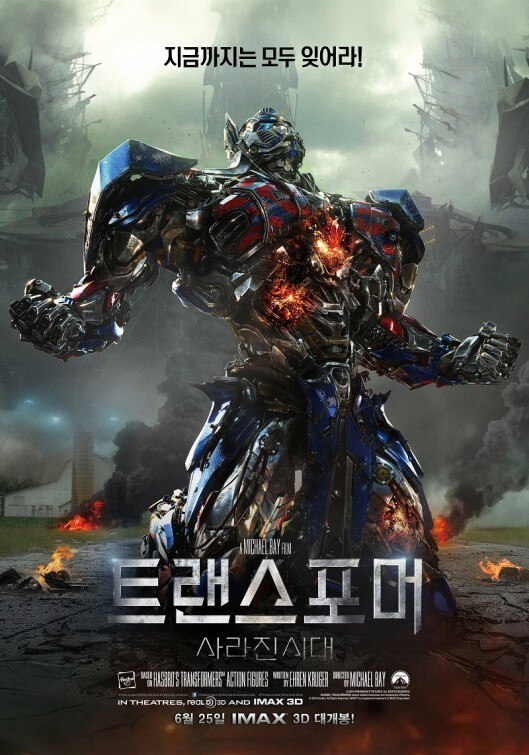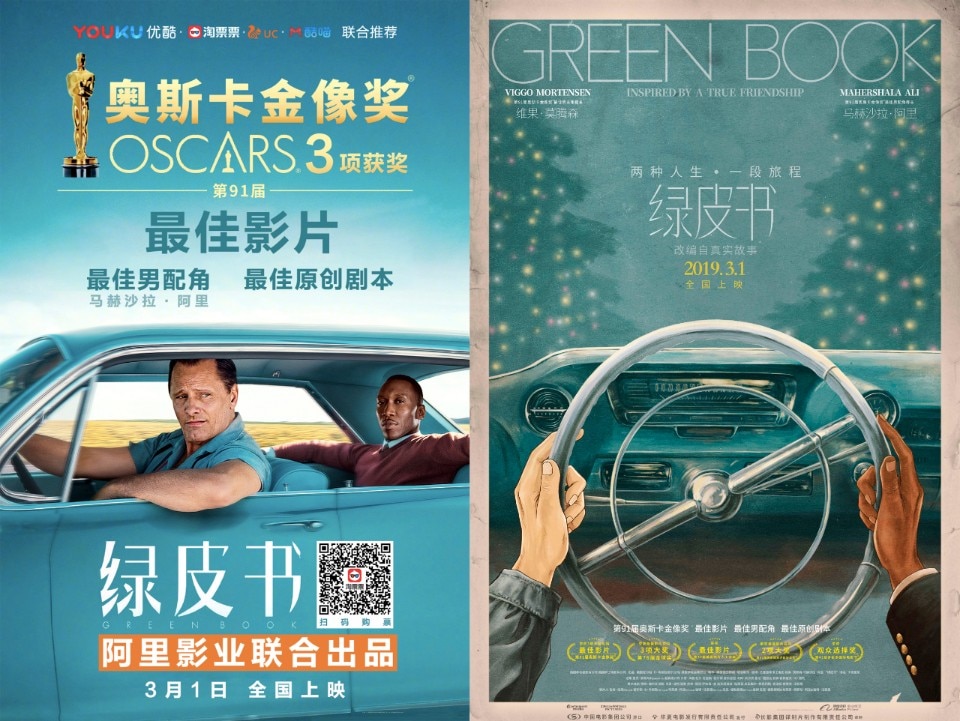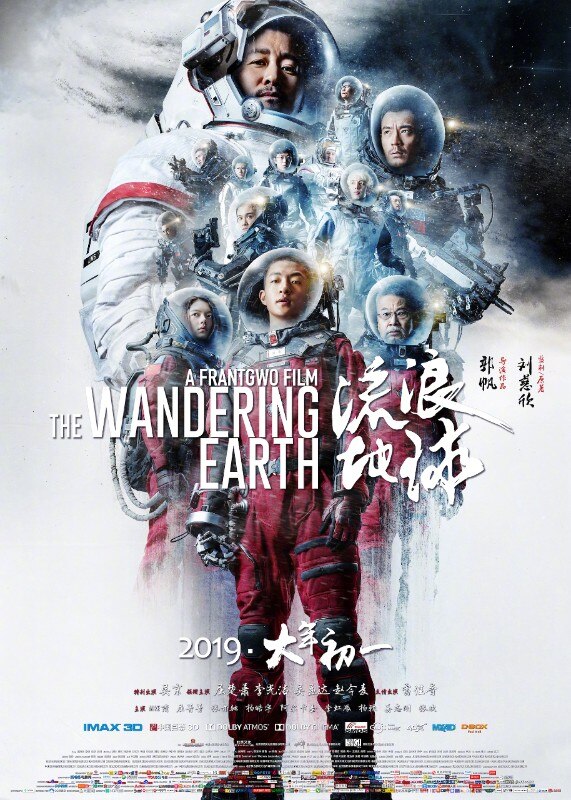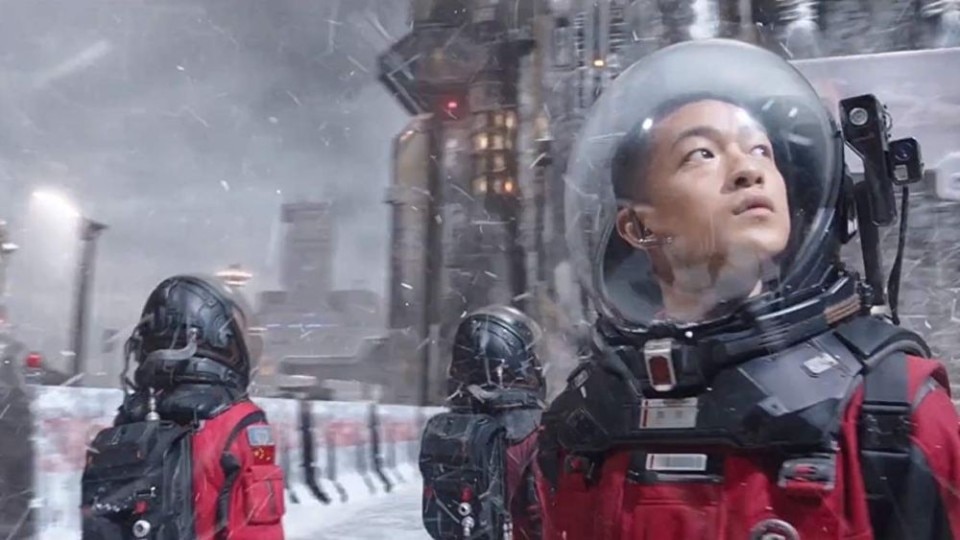When, in the 1990s the films of John Woo, or other Wuxia Pian such as Crouching Tiger Hidden Dragon, began to come out of China (in reality mostly from pre-Handover Hong Kong) and reach the West, the way in which American cinema tried to smash box-offices began to change: slow-motion, exaggerated emotions and the use of wires and omnipresent stylised choreographed physical combat (which all reached its apex and consecration in Matrix).
Now the opposite is taking place, and again it is down to economic reasons. The Western market alone can no longer support the cost of films which have to present themselves as unmissable events which are worthy of projection. Films now need to be seen world-wide, particularly in more populated countries. Among these, China has the most screens (more than Russia) and the strongest bent for American cinema (India is currently practically impenetrable, and the market is saturated by nationally-produced films). Hollywood has been focusing on Beijing for almost ten years now, enough time to be able to say that China is no longer even the future of American cinema, but rather its present.

However, there is a reason why we watch lots of American films, a reasonable number of European films, and only a few Chinese or Indian productions. The Chinese and the Indians make films differently from us. They want values which differ from ours to emerge from the stories they tell. In short, their films are made with the same quality as Hollywood productions (they certainly cost the same) but in our eyes they are ingenuous, manichaeistic, too long and too full of characters who never get to the point. They appear mushy, incapable of stimulating the perverse charm of evil, childish and conditioned by cast-iron moralism. American cinema (not to mention European productions) were for a long time also like this. Until the end of the 1960s (with the notable exception of a few crime dramas and noir), they were synonymous with happy endings and a celebration of positive values. In the best of cases they were a moving tribute to all that is marvellous in the world, in the worst examples, they were pure falsehood.
In order to penetrate the Chinese market, the American film industry has worked both politically (there is a law which governs the number and type of film that can be imported, which over the years has relaxed greatly in terms of both quantity and type) and artistically, so much so that now the most successful films are ever-increasingly similar to their Chinese equivalents. While with The Wandering Earth the Chinese industry is showing that it is also capable of creating science-fiction with the same ambitions as Hollywood (but not with the same level of fantasy, as the film brings together a large number of ideas which have already been seen), Hollywood has flooded that market with Transformers, Fast & Furious, Warcraft and Marvel and DC superheroes. Success in Asia may be strong enough to turn a flop around, as was the case with Warcraft (213 million dollars in China compared to 47 earned at home) even though more often than not its fate is confirmed and amplified.
For this to happen, the film needs to be tailor-made for the Chinese market.

Lorenzo Di Bonaventura, producer of the Transformers saga, was one of the first to understand how to interpret Chinese audiences. In his opinion, it is all a question of how the characters are treated: “For example, they are unable to accept a story where an elderly person is not treated with respect”. But in reality, judging from the films, there are much more technical reasons. Firstly, films need to be longer and wider, they need to go beyond two hours in length as they do not have three acts, as per classic Western narration (balance, loss of balance which leads to adventure, final resolution), but four (balance, loss, resolution, new loss of balance from a different direction, final resolution). This is also why a very extensive cast is required. Solitary heroes do not exist, and so in Hollywood we have seen the arrival of “families”, like the one in Fast & Furious (the latest film in the saga has produced the highest-ever earnings for an American film in China). There are ever-increasing numbers of actors, ever more groups, and the baddie from the previous film regularly becomes one of the goodies in the next episode.
Films such as Roma, The Favourite and even Green Book are examples of cinema which looks ahead and seeks to ride the crest of changes in society. Transformers, Jurassic World and Fast & Furious are scientifically opposed.
The international blockbuster of the 2010s is also founded on a strict division between men and women which is far removed from our modern standards of equality. In Jurassic World (which was also blessed with enormous success in Asia), the contrast between Chris Pratt (the hard and virile man who resolves the situation) and Bryce Dallas-Howard (the woman permanently in heels who follows him, helps him, tries to love him and to stay out of trouble) is a throwback to pre-1980s Hollywood cinema when, in Romancing the Stone, Michael Douglas and Kathleen Turner parodied this rigid format, rendering it instantly obsolete.
Hollywood is backdating itself for Asian audiences. Films such as Roma, The Favourite and even Green Book (as well as certain super-hero films such as Wonder Woman or Captain Marvel) are examples of cinema which looks ahead and seeks to ride the crest of changes in society. Transformers, Jurassic World and Fast & Furious are scientifically opposed.

And there is more. Even the plots and adventurous twists follow the passion of Asian cinema for deception and fraud. In the latest episode of Fast & Furious, the biggest-ever star of the series, Vin Diesel, passes to the enemy camp in an elaborate move which no-on really believes in (except for the other characters) and which in fact is revealed at the end of the film to be a bluff. It is an obvious move, typical of Chinese blockbusters, in which the double-cross is as fundamental as the second chance is for Hollywood.
Strangely enough, the bringing together of all the characteristics which American cinema is taking from Chinese film (length, large cast, four acts, copious deception, epic physical clashes, clear separations between men and women and a lack of individualism) has resulted in Avengers: Infinity War and its successor Avengers: Endgame. Two films which are the height of this process, the first - by no coincidence is the third most important American financial success in the history of China (the 11th highest-earning film in the country overall), while the latter, (full of deception and double-crosses to uncover) could do even better.
Opening picture: The Wandering Earth, China 2019.


